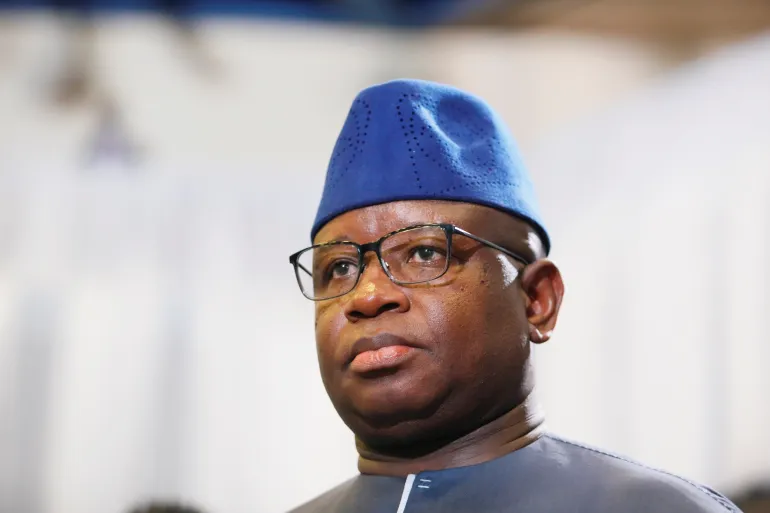The Sierran Leonean President, Julius Maada Bio, announced on Sunday evening that tranquillity has returned to the nation following a day fraught with armed confrontations in the capital, Freetown. The incidents were presented by President Bio as an attempted disruption of national stability. He announced that a majority of the instigators have since been apprehended.
Presidential assurances came in the wake of violent scenes in Freetown, where unidentified individuals tried to infiltrate a military armoury, took on security forces in various parts of the city, and facilitated the release of many prisoners.
The national authorities responded to the chaos by decreeing a nationwide curfew, which is in effect until unspecified future notice. “The majority of the leaders have been arrested and will be held to account,” stated President Bio in a brief press release without revealing specific details. Further reassurances about the security situation in Freetown being firmly under government control came from Information Minister Chernor Bah.
Albeit a somewhat thin calm returned to the city; strategic checkpoints remain guarded by considerable security forces. The official count of casualties resulting from the violent incidents remains undisclosed.
Subsequent to the calming of the situation, airlines received instructions from Civil Aviation to reschedule flights following the lifting of the curfew. Nevertheless, it was clarified that the airspace had remained in operation.
Internationally, these incidents alarmed observers, invoking memories of recent coup attempts in the West African region including in Mali, Burkina Faso, Niger, and Guinea. The Economic Community of West African States (ECOWAS) insisted on respect for the constitutional order, terming the incidents an attempt not only to seize weapons from the arsenal but also to “disturb peace and constitutional order.”
Further international concern came from the European Union’s local representation, which issued a call for “respect for constitutional order.” Sierra Leone, an English-speaking country, has been grappling with political turbulence arising from disputed presidential and general elections in June 2023. This incident adds to the challenges faced by one of the world’s poorest countries, which is already coping with severe economic difficulties.
The incidents on Sunday began with a startling wake-up call – the sound of gunfire before dawn. “I woke up around 4:30 AM to blasting sounds of machine guns and bombs from the Wilberforce barracks. I was in shock, panic-stricken… It felt like being in a war zone. Because of the curfew, I couldn’t go to church,” said Susan Kargbo, a local resident who narrated the ordeal over the phone.
Rumours have been rife within the tense city. The government has dismissed claims of an attempted take-over of national television – a common tactic during coups.
The US embassy in Sierra Leone took to social media to “strongly condemn the attempt to forcibly seize the Wilberforce barracks and arsenal overnight”. ECOWAS also expressed support for the existing government and echoed the call for arrests of the parties responsible for the disturbances.
ECOWAS upheld its zero-tolerance stance towards governmental overthrows. “ECOWAS reiterates its principle of zero tolerance for unconstitutional changes of government,” it pronounced. President Maada, initially voted into power in 2018 and re-elected in June with 56.17% of votes (as per the results published by the electoral commission and contested by the opposition), navigates through these challenges attempting to secure national stability.
Image Credit: Afolabi Sotunde/Reuters





